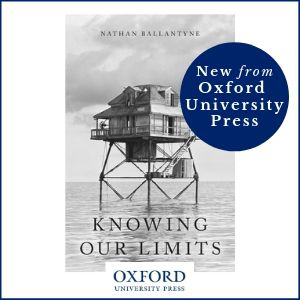Mini-Heap
New Mini-Heap…

- Quiet justice — this could yield interesting work in political philosophy, bioethics, philosophy of science, philosophy of perception…
- Pythagoras: philosopher, mathematician, prankster — an explanation of how his “Greedy Cup” works
- “A, B, C, D, and E go into a bar and E is next to A and A is next to B and C must be two spaces over from E. Where is D? I’ve never had to answer a question like that in any state or federal court” — Will this change to the LSAT mean an end to philosophy majors’ top performance on the exam?
- The Blog of the APA has been redesigned — and it looks great
- “WFF ‘n Proof”, the game of modern logic — a set of 21 games, with 36 special dice, a timer, and a 184-page manual (via Christopher Reighley / @reighleyc)
- A collection of posts about what it is like to be a philosopher in different parts of the world — “The Cocoon Goes Global” series already has four entries in it
- “There are both deontological and teleological reasons to want to build an open society that includes lots of diverse perspectives” — Kevin Vallier (Bowling Green) is interviewed about liberalism, religion, trust, and related topics
Mini-Heap posts appear when 7 or so new items accumulate in the Heap of Links, the ever-growing collection of items from around the web that may be of interest to philosophers.
The Heap of Links consists partly of suggestions from readers; if you find something online that you think would be of interest to the philosophical community, please send it in for consideration for the Heap. Thanks!



WFF n Proof is almost 60 years old.
https://americanhistory.si.edu/collections/search/object/nmah_694594
Get BlueMail for Android
On the LSAT changes – if the logic games are fully removed and not replaced, I wonder if it won’t be too easy. Certainly, it should be extremely easy for anyone who can do well in philosophy, as the other sections are very simple reading comprehension of short passages (things like asking what the main idea of a few paragraphs are) and “logical reasoning” – spotting missing premises in arguments, fallacies, errors in reasoning, etc. This is just basic stuff for philosophers. Maybe philosophy students did well on the analogical reasoning / logic games section – I’m not sure if this was an especial strength or not – but I’d be surprised if they didn’t already excel on the other two sections.